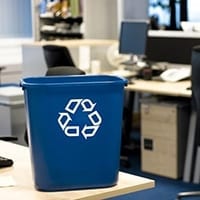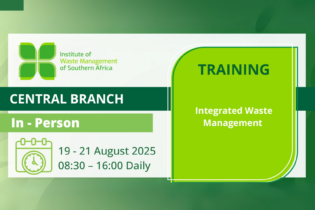The tourism and hospitality industry is one of the fastest growing economic sectors globally, which is proving to have a serious, negative impact on the environment.
It is becoming increasingly essential that hotels and businesses have sustainability programmes in place. Verde Hotels is taking this approach and has had significant, positive results around waste minimisation and management strategies and processes. Dawie Meiring, Group Systems and Sustainability Manager at Verde Hotels, says, “Our primary objective is to ensure that the properties we develop and operate have systems in place to minimise the consumption of natural resources, avoid and lower the generation of waste, reduce, re-use, recycle and recover waste where possible, and, as a last resort, treat and safely dispose of waste.” It is important to inform, educate and get the buy-in of staff, stakeholders, guests and the community to support and sustain environmental initiatives at ground level. The hotel actions and encourages responsible procurement, buys in bulk and uses eco-friendly alternatives. “We have also installed split bins in all 145 rooms and at strategic points throughout the hotel along with educational signage and green tips. Our guests are rewarded with a unique in-house currency called ‘Verdinos’ when they participate in correctly using the bins or any of the hotel’s other green initiatives.”Excellent results
Dawie states that the figures for Hotel Verde Cape Town are phenomenal, having exceeded their waste-to-land fill targets of 85% set in 2013 to 97.06% in 2018. “Of the 2.2 kg of waste generated per guest per stay, only 64 grams could not be diverted from landfill. It isn’t just not recyclable but is also not reusable, compostable or upcyclable – but we are actively searching for new ways of re-purposing this waste too.”Year on year the hotel has also achieved a 36% reduction in waste production which equates to a saving of 71 tonnes of waste not being generated.







